第52章 Chapter 8(4)
In the ordinary case the farmers of the great American farming regions are owners of the land and improvements, except for an increasing proportion of tenant farmers. But it is the farmer-owner that is commonly had in mind in speaking of the American farmers as a class. Barring incumbrances, these farmer-owners have a good and valid title to their land and improvements; but their title remains good only so long as the run of the market for what they need and for what they have to sell does not take such a turn that the title will pass by process of liquidation into other hands, as may always happen.
And the run of the market which conditions the farmer's work and livelihood has now come to depend on the highly impersonal manoeuvres of those massive interests that move in the background and find a profit in buying cheap and selling dear. In point of law and custom there is, of course, nothing to hinder the American farmer from considering himself to be possessed of a vested interest in his farm and its working, if that pleases his fancy. The circumstances which decide what he may do with his farm and its equipment, however, are prescribed for him quite deliberately and quite narrowly by those other vested interests in the background, which are massive enough to regulate the course of things in business and industry at large. He is caught in the system, and he does not govern the set and motions of the system. So that the question of his effectual standing as a vested interest becomes a question of fact, not of preference and genial tradition.
A vested interest is a legitimate right to get something for nothing. The American farmer -- say, the ordinary farmer of the grain-growing Middle West -- can be said to be possessed of such a vested interest if he habitually and securely gets something in the way of free income above cost, counting as cost the ordinary rate of wages for work done on the farm plus ordinary returns on the replacement value of the means of production which he employs. Now it is notorious that, except for quite exceptional cases, there are no intangible assets in farming; and intangible assets are the chief and ordinary indication of free income, that is to say, of getting something for nothing. Any concern that can claim no intangible assets, in the way of valuable good-will, monopoly rights, or outstanding corporation securities, has no substantial claim to be rated as a vested interest. What constitutes a valid claim to standing as a vested interest is the assured customary ability to get something more in the way of income than a full equivalent for tangible performance in the way of productive work.
The returns which these farmers are in the habit of getting from their own work and from the work of their household and hired help do not ordinarily include anything that can be called free or unearned income, -- unless one should go so far as to declare that income reckoned at ordinary rates on the tangible assets engaged in this industry is to be classed as unearned income, which is not the usual meaning of the expression. It may be that popular opinion on these matters will take such a turn some time that men will come to consider that income which is derived from the use of land and equipment is rightly to be counted as unearned income, because it does not correspond to any tangible performance in the way of productive work on the part of the person to whom it goes. But for the present that is not the popular sense of the matter, and that is not the meaning of the words in popular usage. For the present, at least, reasonable returns on the replacement value of tangible assets are not considered to be unearned income.
It is true, the habits of thought engendered by the machine system in industry and by the mechanically standardised organisation of daily life under this new order, as well as by the material sciences, are of such a character as would incline the common man to rate all men and things in terms of tangible performance rather than in terms of legal title and ancient usage. And it may well come to pass, in time, that men will consider any income unearned which exceeds a fair return for tangible performance in the way of productive work on the part of the person to whom the income goes. The mechanistic logic of the new order of industry drives in that direction, and it may well be that the frame of mind engendered by this training in matter-of-fact ways of thinking will presently so shape popular sentiment that all income from property, simply on the basis of ownership, will be disallowed, whether the property is tangible or intangible. All that is a speculative question running into the future. It is to be recognised and taken account of that the immutable principles of law and equity, in matters of ownership and income as well as in other connections, are products of habit, and that habits are always liable to change in response to altered circumstances, and the drift of circumstances is now apparently setting in that direction. But popular sentiment has not yet reached that degree of emancipation from those good old principles of self-help and secure ownership that go to make up the modern (eighteenth-century) point of view in law and custom.
The equity of income derived from the use of tangible property may presently become a moot question; but it is not so today, outside of certain classes in the population whom the law and the courts are endeavoring to discourage. It is the business of the law and the courts to discourage any change of insight or opinion.